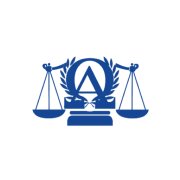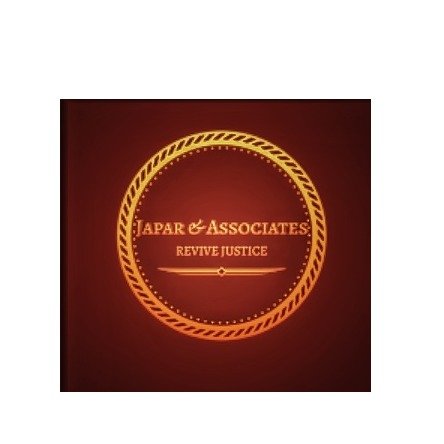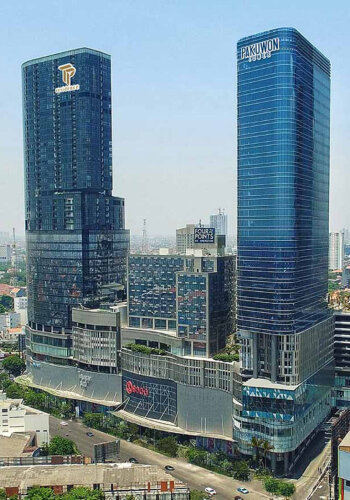Best Project Finance Lawyers in Surabaya
Share your needs with us, get contacted by law firms.
Free. Takes 2 min.
List of the best lawyers in Surabaya, Indonesia

Jiwangga Law Office | Lawyer Surabaya | Advokat Surabaya | Pengacara Surabaya
30 minutes Free ConsultationAbout Project Finance Law in Surabaya, Indonesia
Project finance is a specialized area of law focused on the funding of large-scale infrastructure and industrial projects, such as power plants, toll roads, ports, and water treatment facilities. In Surabaya, the legal framework for project finance involves a complex mix of Indonesian national laws and local regulations, given Surabaya's role as a major economic and commercial hub in East Java. Typically, project finance transactions involve a network of contracts that allocate risks and revenues among parties, including lenders, sponsors, contractors, and government agencies. Legal experts play a pivotal role in ensuring that these contracts are enforceable, compliant with local regulations, and protect the interests of all stakeholders.
Why You May Need a Lawyer
A lawyer specializing in project finance can provide invaluable assistance in numerous situations, such as:
- Structuring complex project finance transactions to optimize risk allocation and financial efficiency.
- Drafting, negotiating, and reviewing key project documents such as loan agreements, concession contracts, and engineering procurement construction (EPC) contracts.
- Securing necessary permits, licenses, and approvals from local and national authorities.
- Navigating the regulatory landscape in Surabaya and understanding the impact of local policy on project implementation.
- Advising on land acquisition matters, environmental compliance, and corporate structuring for foreign or joint ventures.
- Representing clients in disputes, arbitration, or litigation arising from project development or financing agreements.
Local Laws Overview
Project finance transactions in Surabaya are governed by a combination of national laws and local regulations. Some key legal aspects include:
- Investment Law - Law No. 25 of 2007 on Investment, which regulates both domestic and foreign direct investment in Indonesia.
- Public-Private Partnership (PPP) frameworks as outlined in Presidential Regulation No. 38 of 2015 regarding partnerships for infrastructure projects.
- Banking and finance regulations set by Bank Indonesia and the Financial Services Authority (OJK). These cover project loans, security arrangements, and repayment structures.
- Land procurement under Law No. 2 of 2012 for public interest development, often relevant for infrastructure deals.
- Environmental law compliance, including environmental impact assessments (AMDAL) required by the Ministry of Environment and Forestry.
- Local government regulations from the City of Surabaya, which may impact zoning, business licensing, and taxation of projects.
Frequently Asked Questions
What is project finance?
Project finance is a method of funding where the repayment of loans and investment returns rely on the cash flow generated by the project itself, not on the general assets or creditworthiness of the project sponsors.
Is foreign investment allowed in project finance in Surabaya?
Yes. Foreign investors can participate in project finance in Surabaya, subject to Indonesia's foreign investment regulations and sectoral restrictions outlined in the Negative Investment List.
What are the main risks in project finance deals?
Risks include construction delays, cost overruns, regulatory changes, land acquisition issues, and demand or market risks affecting project revenue.
How are project finance deals commonly structured?
These deals are usually structured through special purpose vehicles (SPV) that are legally separated from the sponsors, with each contract carefully allocating specific risks.
Are government guarantees available for project finance projects?
For certain public infrastructure projects, government guarantees or support may be available, especially under specific PPP schemes as defined by Indonesian regulations.
What permits are needed for projects in Surabaya?
Key permits might include business licenses, building permits, environmental approvals (AMDAL), and sector-specific consents from relevant ministries or local government bodies.
Can disputes be resolved through arbitration in Indonesia?
Yes. Arbitration is a common dispute resolution mechanism for project finance, with the Indonesian National Arbitration Board (BANI) being a frequent choice, or through other recognized arbitral institutions.
What are the tax considerations?
Project finance can involve complex tax structuring, including corporate income tax, value added tax, and withholding taxes on cross-border transactions. Consulting a specialist is highly recommended.
How do I secure land for my project?
Land procurement for public-interest projects must comply with Law No. 2 of 2012, often involving detailed negotiations with local landowners and approval from local government in Surabaya.
Do I need a local partner for project finance in Surabaya?
Some sectors require local partners or impose limits on foreign ownership. Having a local partner can also help navigate regulations and manage local relationships more effectively.
Additional Resources
If you are seeking guidance or information about project finance in Surabaya, the following organizations can be helpful:
- Financial Services Authority of Indonesia (OJK)
- Investment Coordinating Board of Indonesia (BKPM)
- Surabaya City Government - licensing and permits office
- Ministry of Public Works and Housing - for public infrastructure policies
- Ministry of Environment and Forestry
- Indonesian Chamber of Commerce and Industry (KADIN)
- Indonesian National Arbitration Board (BANI)
Next Steps
If you need legal assistance with project finance in Surabaya, consider the following actions:
- Gather basic information about your project, including investment goals, potential partners, anticipated financing needs, and location details.
- Contact a local law firm or legal consultant with experience in project finance in Surabaya to discuss your specific needs.
- Prepare any existing contracts, company documents, or permits for review by your legal advisor.
- Ask your legal counsel about their experience with similar projects, knowledge of local regulations, and approach to risk management and compliance.
- Develop a timeline for legal steps, including securing permits, negotiating agreements, and closing financing.
Engaging with a qualified legal professional from the outset can help you avoid costly errors, ensure regulatory compliance, and increase the long-term success of your project finance venture in Surabaya.
Lawzana helps you find the best lawyers and law firms in Surabaya through a curated and pre-screened list of qualified legal professionals. Our platform offers rankings and detailed profiles of attorneys and law firms, allowing you to compare based on practice areas, including Project Finance, experience, and client feedback.
Each profile includes a description of the firm's areas of practice, client reviews, team members and partners, year of establishment, spoken languages, office locations, contact information, social media presence, and any published articles or resources. Most firms on our platform speak English and are experienced in both local and international legal matters.
Get a quote from top-rated law firms in Surabaya, Indonesia — quickly, securely, and without unnecessary hassle.
Disclaimer:
The information provided on this page is for general informational purposes only and does not constitute legal advice. While we strive to ensure the accuracy and relevance of the content, legal information may change over time, and interpretations of the law can vary. You should always consult with a qualified legal professional for advice specific to your situation.
We disclaim all liability for actions taken or not taken based on the content of this page. If you believe any information is incorrect or outdated, please contact us, and we will review and update it where appropriate.
















